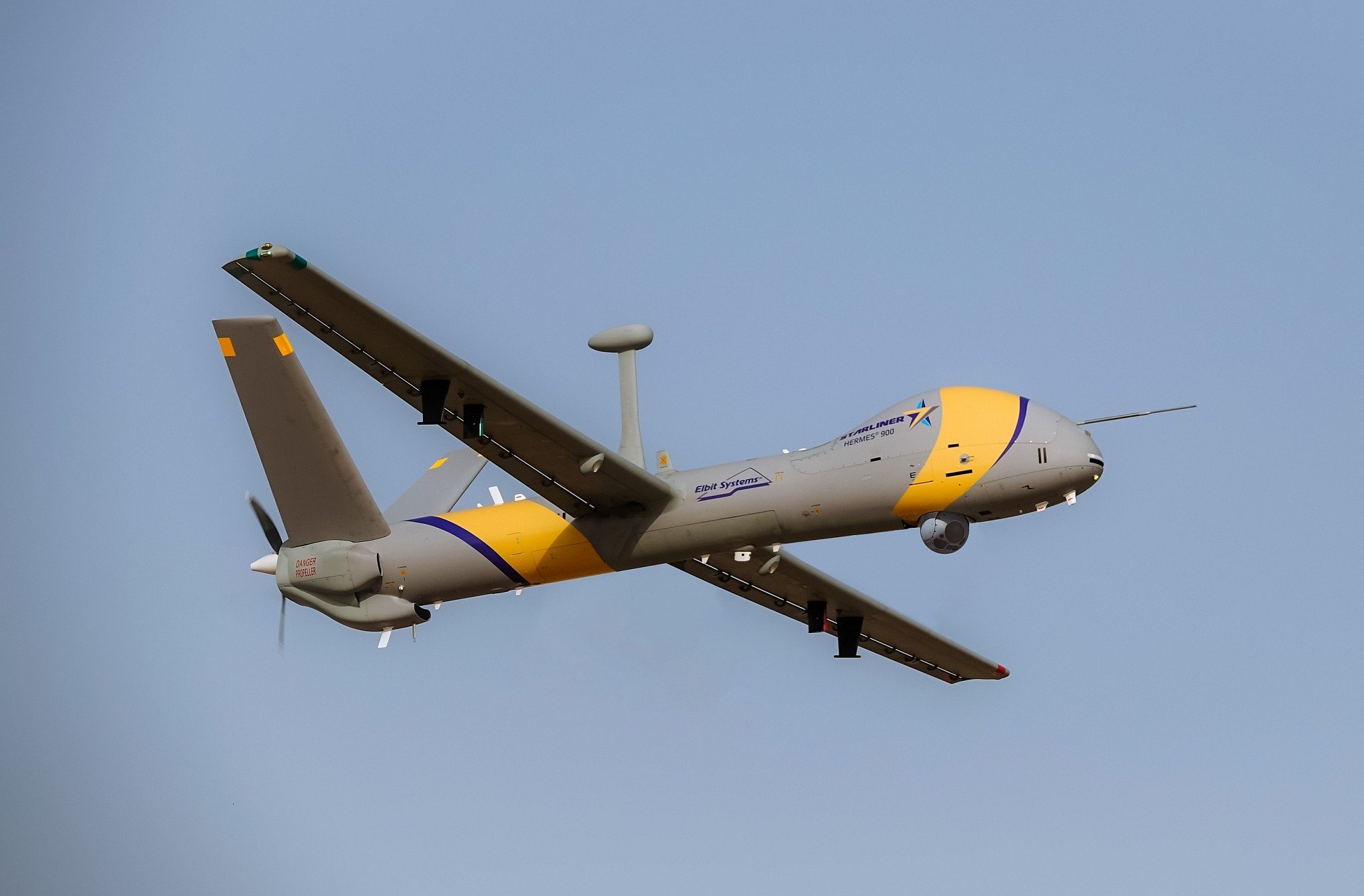



Swiss authorities are considering canceling an order for advanced drones from Israel’s Elbit Systems, due to years of delays that have left even the craft delivered so far unable to fulfil their expected capabilities, local media reported.
The $246 million deal was for six of Elbit’s Starliner drones, a modified version of the military Hermes 900 drone, which is touted as being able to fly autonomously alongside civilian aircraft for local security operations.
But though the deal was signed in 2015 with a delivery date of 2019, so far only five drones are in Switzerland, and none of them meet demands, the NZZ outlet reported last week.
National Armaments Director Urs Loher told NZZ that though he had for a long time felt that pulling out of the deal was not a good idea, “now we’re at the point where the question arises as to whether the proverbial last straw has broken the camel’s back.”
A key requirement, according to the report, was that the drones be able to land autonomously even without GPS, and also avoid obstacles.
According to the report, the drones are having difficulty identifying birds and other aircraft during takeoff, forcing the Swiss air force to accompany every takeoff and landing with another aircraft, thus increasing costs and complicating operations.
In addition, an obstacle detection system being developed by the Swiss federal company RUAG is also not ready.
The expectation now is that the order will only be completed by 2029, the report said.
The Swiss parliament’s finance committee warned in January that the delays pose “significant risks regarding technical feasibility, approval, and costs,” NZZ reported at the time.
Swiss Defense Minister Martin Pfister will decide by the end of the summer whether to continue the deal or abort and issue a new tender for drones.
If he chooses to pull out, Switzerland will suffer a loss of some 300 million francs, and Loher noted that Elbit could make counterclaims as it has already invested considerable resources in the project, leading to a legal dispute.
The drones already caused friction between Israel and Switzerland in 2017, when Bern said that its officials would no longer be permitted to visit the Golan Heights, where they had previously gone to observe Hermes 900 drones flying from the Pik airfield.
The Swiss defense ministry said at the time that the officials were not aware the airfield was located in “occupied territory” and their visits to the site were “contrary” to the policies of the country’s foreign ministry.
Israel captured the Golan Heights in the 1967 Six Day War with Syria and later extended Israeli law to the area in 1981, although the move was not recognized by the international community, much of which considers the Golan to still be part of Syria. US President Donald Trump recognized the area as Israeli during his first term.
Elbit unveiled the Starliner in 2018. It is meant to allow governments and security agencies to collect intelligence domestically, in areas where drones currently cannot fly.
The manufacturer said the model was created in light of requests by countries around the world for drones that can help thwart domestic terror attacks, like those perpetrated by the Islamic State terrorist group, and not just for missions abroad.
Most currently available UAVs lack the necessary sensors to operate in these areas without interfering with other aircraft. As a result, many countries have laws forbidding such drones from flying in civilian airspaces.
When the Hermes 900 was used to provide additional security during the 2014 World Cup in Brazil, for instance, the rest of the airspace where it was operating had to be cleared of traffic.
Israeli drones, and in particular the Hermes 900, which has a long range, were heavily involved in the recent 12-day war with Iran.

